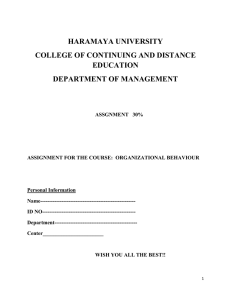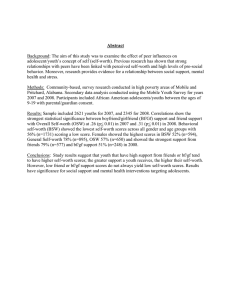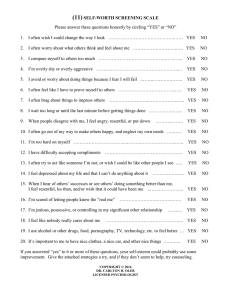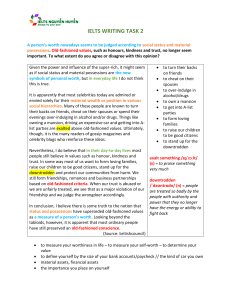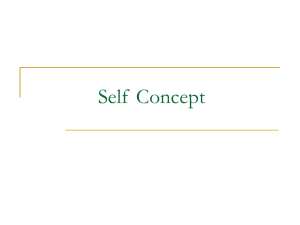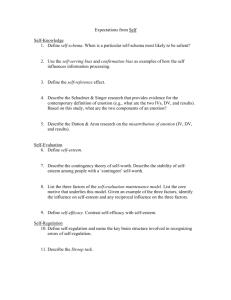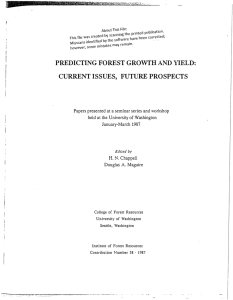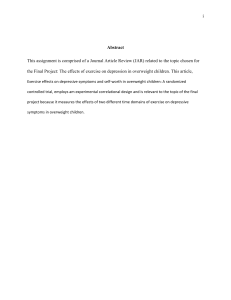Questions on the readings--Intro unit
advertisement
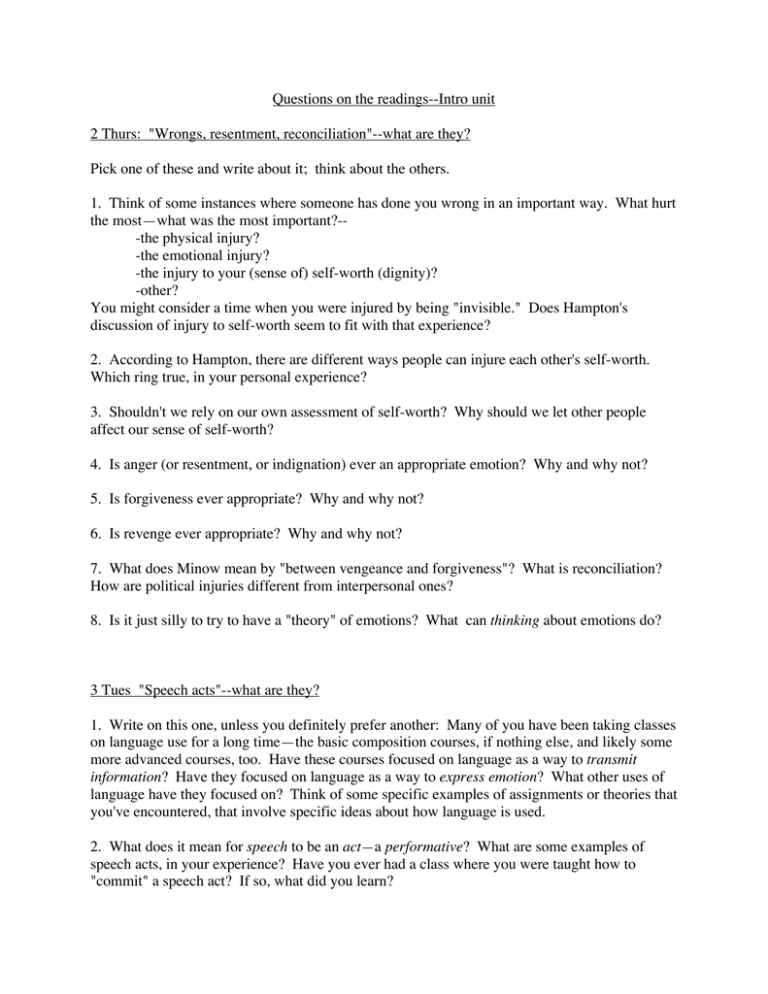
Questions on the readings--Intro unit 2 Thurs: "Wrongs, resentment, reconciliation"--what are they? Pick one of these and write about it; think about the others. 1. Think of some instances where someone has done you wrong in an important way. What hurt the most—what was the most important?--the physical injury? -the emotional injury? -the injury to your (sense of) self-worth (dignity)? -other? You might consider a time when you were injured by being "invisible." Does Hampton's discussion of injury to self-worth seem to fit with that experience? 2. According to Hampton, there are different ways people can injure each other's self-worth. Which ring true, in your personal experience? 3. Shouldn't we rely on our own assessment of self-worth? Why should we let other people affect our sense of self-worth? 4. Is anger (or resentment, or indignation) ever an appropriate emotion? Why and why not? 5. Is forgiveness ever appropriate? Why and why not? 6. Is revenge ever appropriate? Why and why not? 7. What does Minow mean by "between vengeance and forgiveness"? What is reconciliation? How are political injuries different from interpersonal ones? 8. Is it just silly to try to have a "theory" of emotions? What can thinking about emotions do? 3 Tues "Speech acts"--what are they? 1. Write on this one, unless you definitely prefer another: Many of you have been taking classes on language use for a long time—the basic composition courses, if nothing else, and likely some more advanced courses, too. Have these courses focused on language as a way to transmit information? Have they focused on language as a way to express emotion? What other uses of language have they focused on? Think of some specific examples of assignments or theories that you've encountered, that involve specific ideas about how language is used. 2. What does it mean for speech to be an act—a performative? What are some examples of speech acts, in your experience? Have you ever had a class where you were taught how to "commit" a speech act? If so, what did you learn? 3. Speech that conveys information is judged as true or false. Speech that conveys emotion is judged as sincere or insincere. How should we judge speech that is an act? 4. How can we tell if some speech is an act, according to Austin? Can you apply his method to the types of speech you use every day? Think through the times you've spoken with someone today, and try to identify the acts you've engaged in. 5. Why do speech acts work? How can emitting some sound waves (which is all speech is, after all) really have an effect on other people? Can you think of some examples? 3 Thurs "Gross violations of human rights"--what are they? Reports on your "atrocity books." Two assignments: First: Write a review of your book on amazon.com; email a copy to me. Make it useful for the general public who might be reading it. Second: Bring in a general question that your book raises in your mind, and be prepared to lead class discussion on it. For example, my question is: "Could we here in Iowa ever do anything like this?" Other things to think about: 1. What perspective does your book take on the atrocities it tells about? For example, does it stress psychology (trauma and healing); sociology (social causes and cures); theology (evil and redemption); politis (corrupt and healthy institutions); other? How does the author's choice of perspective effect the content of the book, and it's overall "moral" or lesson? Is there a single "best" perspective to take? 2. Consider the idea of a "crime against humanity"—when does a wrong directed at some person or group become a crime against us all? 3. Look at the Universal Declaration of Human Rights. Is there anything imporant missing? Does everything on the list really belong there? Is the US in basic violation because of the death penalty? because we lack universal health coverage? Are some of these rights more important than others?
